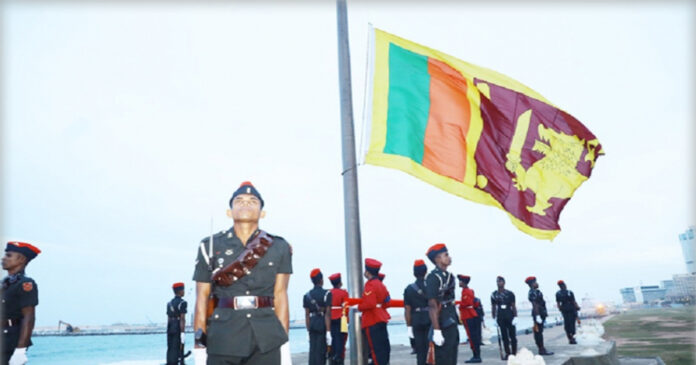According to the state minister of defense, Sri Lanka will reduce its military by a third to 135,000 soldiers by next year and to 100,000 by 2030 as it strives to cut expenditures in the face of its greatest economic crisis in more than seven decades.
Premitha Bandara Thennakoon stated in a statement that “Military spending is primarily state-borne expenditure that indirectly encourages and offers avenues for economic growth by way of ensuring national and human security.”
Thennakoon plans to create a “technically and tactically sound and well-balanced” defence force by 2030.
According to World Bank data, the number of Sri Lanka’s armed forces reached its peak between 2017 and 2019, with 317,000 soldiers, even more than it was during the 25-year struggle with the Liberation Tigers of Tamil Eelam (LTTE), which ended in 2009.
According to Colombo-based think firm Verite Research, the defence sector’s share of overall expenditures in Sri Lanka peaked in 2021 at 2.31 per cent of the GDP but dropped to 2.03 per cent last year.
Recently President Ranil Wickremesinghe ordered a 5% cut in government spending and this week his administration issued a warning that this month welfare payments for 1.8 million households living below the poverty line would be delayed by his administration.
For Sri Lanka to be eligible for a $2.9 billion IMF loan, it must achieve debt sustainability.
Additionally, the lender has requested that Colombo reduce its 1.5 million-strong public service, drastically increase taxes, and sell off state businesses that are losing money.
Sri Lanka Government
Sri Lanka’s attempts to restructure its debt have stagnated because important creditors like China and India have not yet agreed to a “haircut” on their loans to the South Asian country.
We doubled personal income and business taxes on January 1st to boost state revenue.
After a 75 percent tariff hike in August, electricity costs are also rising by another 65 percent.
The 22 million people in Sri Lanka faced months of food and fuel shortages, ongoing outages, and uncontrollable inflation last year, inciting widespread resentment.
At the height of the crisis, in July, Wickremesinghe took office, replacing his predecessor who had fled the nation after demonstrators attacked his home.

